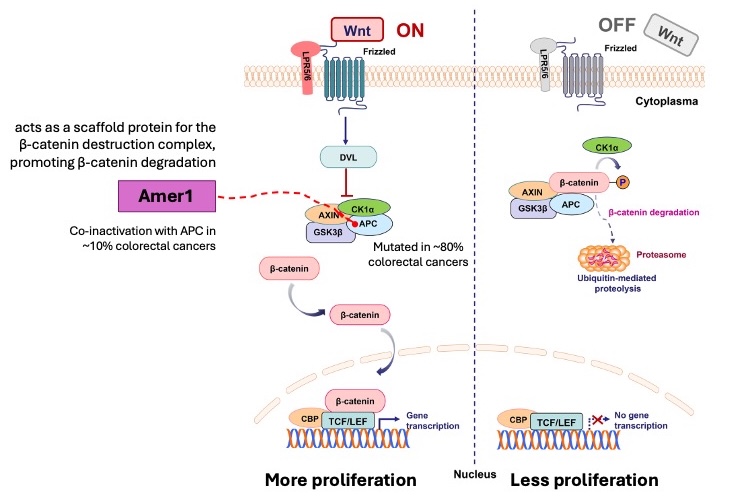Unraveling the consequences of AMER1 inactivation in colorectal cancers
Updated On Sep 4, 2023
Cancer often develops because of genetic mutations in key genes called “driver genes.” In about 80% of colorectal cancers, mutations occur in a well-known driver gene called APC. These mutations are believed to permanently activate the Wnt signalling pathway, which causes cells to keep multiplying and behave like stem cells, leading to tumour growth.
Another gene involved in the Wnt pathway, AMER1 (short for APC Membrane Recruitment protein 1), is found to be mutated in 10–15% of colorectal cancers. Interestingly, mutations in AMER1 almost always appear alongside APC mutations. At first glance, this doesn’t make much sense: if APC is already mutated and causing problems, a second mutation in AMER1 would seem unnecessary — yet it still happens.
Adding to the mystery, inherited mutations (germline mutations) in APC are known to strongly increase the risk of developing colorectal cancer. In contrast, inherited mutations in AMER1 don’t cause cancer, but instead lead to a rare bone disorder called osteopathia striata with cranial sclerosis.
My current project aims to untangle this puzzle using large-scale cancer datasets, animal models, and laboratory-grown mini-intestines (called organoids). The goal is to figure out exactly how mutations in AMER1 contribute to cancer development, and whether AMER1 mutations are only significant when APC is already damaged. By understanding the combined effects of these mutations, the research could reveal new ways to prevent or treat colorectal cancer.
